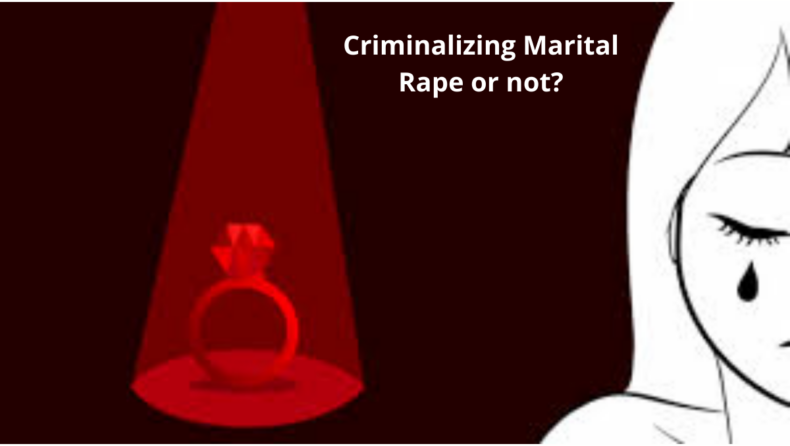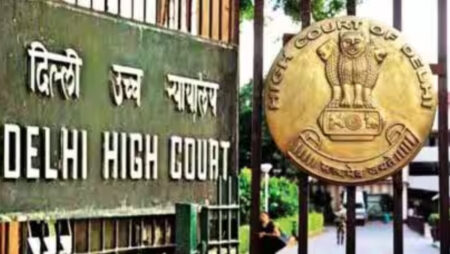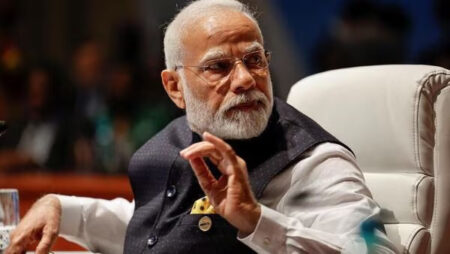The debates accounted for criminalizing marital rape, have got a split-verdict from Delhi High Court.

The Delhi High Court verdict on May 11 settle the debate that whether marital rape should be criminalized or not. The verdict was a split verdict as the two judges on the HC bench, Justice Hari Shankar was on one side while Justice Rajiv Shakdher was on the other, stated that Exception 2 of Section 375, of the Indian Penal Code is violative of the Constitution and hence must be struck down.
-
What is Section 375, Exception 2?
It states that the sexual acts by a man with his wife, the wife not being under 18 years of age as it is the consent marriage age in India, is not rape.
-
How did the case start?
A social and gender equality activist group RIT Foundation and All India Democratic Women’s Association filed a petition in the Delhi High Court and argued that the marital rape exception violates the constitution. While getting detailed assistance on the issues of criminal law before the court, the submissions stated the origins of exception 2 to Section 375 of the IPC, and why forcible sex in marriage is not right.
Justice Hari Shankar committed that there is a difference between sexual relations within the marriage and outside it, which means that the exception does not violate the constitution. The two-judge bench has been proceeding with daily hearings since 7 January. Senior advocate Karuna Nundy, who favours the two petitions said that these NGOs come across marital rape cases on daily basis and they have limited redressals as the law does not provide any provision regarding this.
-
Affidavit from Centre
Centre had said in an affidavit filed on 12 January that the criminalization of marital rape can open a gateway to various false cases with certain fake allegations. Another affidavit was filed on 3 February 2022, stating that all the stakeholders need time to consult with the court case.
The government has also contended that it is not just a legal view case but has far-reaching legal implications. In the affidavit which was filed in 2017, the government opposed the criminalization of marital rape stating that it would create chaos in the society as it is linked to a social aspect; marriage.
-
India – Not considering non-consensual sexual acts in marriages as rape?
One of the primary issues which India is facing is the social implications regarding the aspect of marriage. It is considered that marriage gives you an expectation of sexual relations and if this exception is struck down then it would create a new offense in the society. While having sexual acts by a man with his wife, cannot be considered constitutionally wrong or termed marital rape, a woman can demand divorce on other provisions like cruelty. The petitioners are demanding that this exception should be struck down as it violates the fundamental right of a married woman.
-
Statements of Justice Rajiv Shakdher
The statement demands for the exception to be struck out. According to the Indian Penal Code, Marital Rape should be considered rape. The concerned judge emphasized the responsibility of the State to punish sexual abuse and violence of every form. The fundamental right that is freedom of speech and expression includes the women’s right to give her consent for these types of acts.
Marital rape is unreasonable and strict action should be taken against it as it damages the human rights of a married woman in an accountable relationship like marriage. Moreover, she is bound for her whole life, demeaning her consent and entitlement.
-
Reasons for not criminalization of Marital rape
In Parliamentary debates and the decisions by the judiciary, the reason ranges from protecting the sanctity of the Institution of marriage to the already existing alternative remedies in law. Criminalizing marital rape is not suitable applied in the Indian context due to the mindset of the society to treat the marriage as a ‘sacrament’, the emphasis on the cultural values. It has also been stated that women have alternative remedies to cater to protection and deal with personal issues.
The case has now reached the supreme court.













